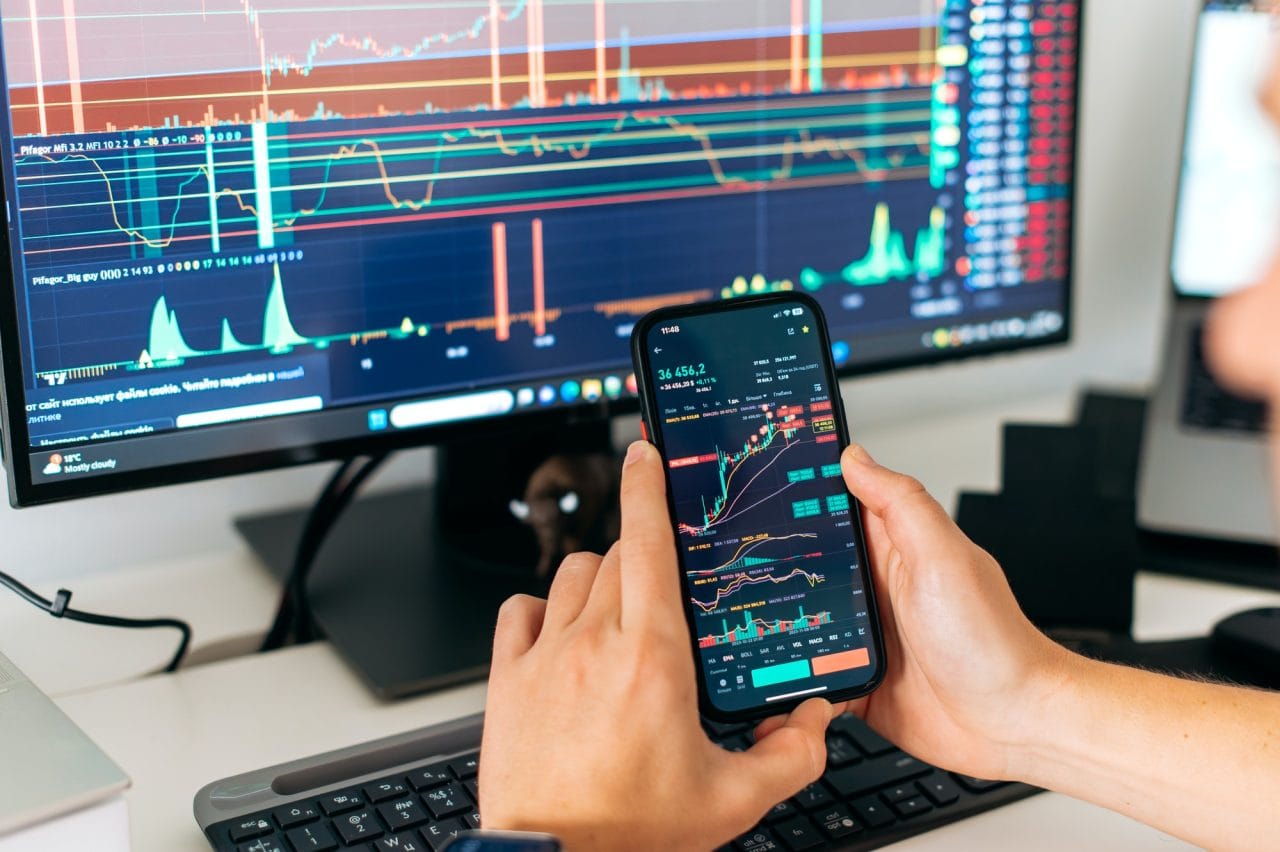Forex trading, or foreign exchange trading, is the process of buying and selling currencies in a global marketplace. The Forex market is the largest and most liquid financial market in the world, with an average daily trading volume exceeding $6 trillion. If you’re a beginner looking to understand how Forex trading works, this guide will provide clear insights into the fundamentals and help you get started in the market.
Whether you’re looking to trade professionally or just exploring as a hobby, this article will explain Forex trading in simple terms. Our company, Forex Trading Explained, is here to provide you with all the necessary tools, resources, and support to navigate the Forex market with confidence.
What is Forex Trading?

Forex trading involves the exchange of one currency for another. Unlike other financial markets, Forex operates 24 hours a day, five days a week, as it spans across different time zones globally. The goal is to profit from changes in currency values, which are influenced by economic, political, and social factors.
For example, if you believe that the Euro (EUR) will strengthen against the US Dollar (USD), you would buy EUR/USD. If the value of the Euro increases relative to the Dollar, you can sell the Euro at a higher price, thus making a profit.
The Mechanics of Forex Trading
Forex trading takes place in currency pairs. A currency pair consists of two currencies – the base currency and the quote currency. The price you see represents how much of the quote currency is required to purchase one unit of the base currency.
Example:
EUR/USD = 1.15
In this case, 1 Euro (EUR) is equal to 1.15 US Dollars (USD).
The first currency in the pair is always the base currency, and the second currency is the quote currency. When trading, if the price of the pair goes up, it means the base currency has appreciated in value relative to the quote currency. Conversely, if the price goes down, the base currency has depreciated.
How Does Forex Trading Work?
Forex trading works by leveraging the changes in the value of currencies over time. The Forex market is decentralized, meaning there is no single exchange where all the transactions occur. Instead, Forex trading is conducted through an extensive network of banks, financial institutions, brokers, and individual traders.
Opening and Closing Positions
When you trade Forex, you can either “go long” or “go short.”
Going long means buying the base currency in anticipation that its value will rise relative to the quote currency.
Going short means selling the base currency in anticipation that its value will fall relative to the quote currency.
You “close” a position by executing an opposite trade. For example, if you bought EUR/USD (went long), you would close the position by selling the same amount of EUR/USD.
Why Trade Forex?
There are several reasons why people engage in Forex trading, whether for investment, speculation, or hedging purposes.
High Liquidity
The Forex market is the most liquid financial market in the world. This means there is always a buyer and a seller available, making it easier for traders to open or close positions at their desired prices.
Accessibility
Forex trading is accessible to anyone with an internet connection. You can trade from home, a cafe, or even while traveling, thanks to mobile apps and online trading platforms.
Flexibility
The market operates 24 hours a day, five days a week. This allows traders to engage in Forex trading at any time that fits their schedule.
Low Costs
The cost of trading in the Forex market is typically low. Most brokers offer competitive spreads, and there are minimal transaction costs compared to other markets.
Types of Forex Market Participants
There are several types of participants in the Forex market, each playing a different role in ensuring the market functions smoothly.
Central Banks
Central banks manage national currencies and intervene in the market to stabilize their economies. For instance, the Federal Reserve in the US or the European Central Bank (ECB) influences the value of the US Dollar and Euro through interest rate decisions and monetary policies.
Banks and Financial Institutions
These institutions conduct a large portion of Forex transactions. They provide liquidity and allow smaller traders to access the market.
Retail Traders
Retail traders are individuals who trade for personal profit using online platforms. This is the category most individual traders belong to, and it’s where companies like Forexmover provide support and resources to ensure success in the market.
Hedge Funds and Large Corporations
These entities use Forex trading to hedge against currency risks or make speculative profits. They are significant market movers due to the large volumes they trade.
Basic Forex Trading Strategies
In order to succeed in Forex trading, having a solid strategy is essential. Below are a few common strategies used by traders.
Day Trading
Day traders buy and sell currencies within a single trading day. This strategy avoids overnight risks by closing all positions before the end of the day.
Swing Trading
Swing traders aim to capture short- to medium-term gains by holding positions for several days or weeks. This strategy requires a keen understanding of market trends and price swings.
Scalping
Scalpers make small, frequent profits by taking advantage of small price movements. This strategy involves opening and closing positions rapidly, often within minutes.
Position Trading
Position traders take a long-term approach and hold positions for weeks, months, or even years. They typically rely on fundamental analysis to make informed decisions.
Risk Management in Forex Trading
Like any financial market, Forex trading carries risk. Managing that risk is essential to long-term success.
Stop-Loss Orders
A stop-loss order is a tool used to limit potential losses. It automatically closes your position if the market moves against you by a specified amount.
Leverage
Leverage allows traders to control larger positions with a smaller amount of capital. While leverage can amplify profits, it also increases potential losses. It’s crucial to use leverage carefully.
Position Sizing
Managing the size of each trade is vital for protecting your capital. Traders typically risk only a small percentage of their account on any single trade.
How to Get Started with Forex Trading?
Getting started with Forex trading can be exciting but requires some preparation. Here are the basic steps to begin:
Choose a Broker: Select a reputable Forex broker like Forexmover, which offers the tools, support, and platforms needed for trading.
Open a Trading Account: Open a trading account with your chosen broker. Most brokers offer different account types, so choose the one that suits your needs.
Fund Your Account: Deposit funds into your trading account. Brokers typically accept a variety of deposit methods, including credit cards and bank transfers.
Start Trading: Begin by practicing on a demo account before trading with real money. Learn the market, and develop a strategy that works for you.
Conclusion
Forex trading can be an exciting and potentially lucrative way to participate in the global financial markets. However, it requires a strong understanding of the market dynamics, risk management, and strategies to succeed. With resources and support from companies like Forexmover, you can navigate the complexities of Forex trading and start on the right foot.
Whether you are looking to trade for a living or just want to learn more about the market, Forex trading is open to everyone, and with the right knowledge and tools, you can start your trading journey today.
FAQs
What is the minimum amount needed to start Forex trading?
The minimum amount varies by broker, but you can start trading with as little as $100 to $500.
Is Forex trading risky?
Yes, Forex trading involves risk, but proper risk management strategies like stop-loss orders can help minimize potential losses.
How can I make money in Forex trading?
Traders make money by correctly predicting the direction of currency prices. Profit is made when you sell a currency pair at a higher price than you bought it.
Do I need a lot of experience to trade Forex?
While experience helps, even beginners can start trading using demo accounts and educational resources from brokers like Forexmover.
Can I trade Forex on my phone?
Yes, many brokers, including Forexmover, offer mobile trading platforms that allow you to trade from anywhere.
By following the tips and strategies outlined above, anyone can start trading Forex and work towards financial success!






